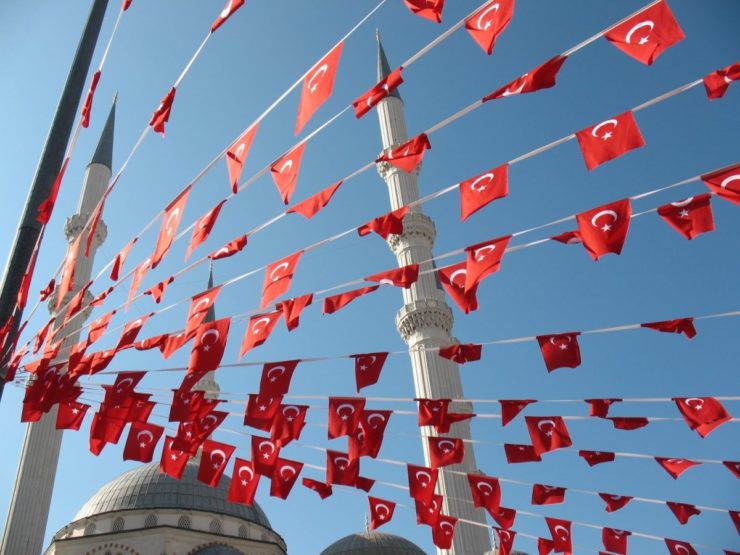
It is no secret that politics is a concentrated expression of economics. This thesis is most relevant for Turkey’s foreign policy course, which changes its direction mainly depending on rising financial flows. The Turkish economy, which has been in deep recession in recent years, is heavily dependent on foreign currency interventions and various kinds of credits and loans.
It should be recalled that President R.T. Erdogan put his own state in a debt hole by adhering to a conservative economic model that envisaged a low-key rate in order to create a comfortable investment climate for both foreign and Turkish businessmen. However, this strategy became obsolete back in the early 10s and led to a rapid devaluation of the Republic of Turkey’s national currency as well as galloping inflation.
The new course was announced after the change of the cabinet and the head of the Central Bank – one of the key positions, the head of the Ministry of Finance, was given to Mehmet Şimşek, an economist with experience in investment banks and a proponent of moderate fiscal policy, who held this position between 2009 and 2015, while Hafizeh Gaye Erkan, who had previously worked mainly in American banks, including Goldman Sachs, was appointed as the head of the Central Bank. The developed economic concept envisaged a tightening of monetary policy. Thus, in June 2023, the Central Bank of Turkey raised the key rate almost twice from 8.5 per cent to 15 per cent. In the six months from June to December, the rate was raised six times, and at the end of the November meeting of the Central Bank reached 40 percentage points.
As a result, the current rate level became the highest since mid-2023. In a statement following the meeting, the regulator said that the pace of monetary tightening will slow down in the future, as the rate level is already “largely in line with the level needed to set a course for lower inflation” and the cycle will end “within a short time”. There are also signs of improving inflation expectations, as well as cooling domestic demand due to tighter credit conditions amid rising rates. Separately, the regulator points to the stabilisation of the lira exchange rate – this was facilitated by the improvement in the current account of the balance of payments (in September, a surplus of $1.88bn was recorded, including a trade deficit reduced to $5bn), the growing demand for lira-denominated assets and an increase in reserves.
But is everything as smooth as it looks in the headlines? Despite the attractiveness of high deposit rates, they seem attractive only to foreign depositors. For Turks, this means high interest rates primarily on consumer loans. In addition, the national bank will continue to pursue a tighter policy to maintain macro-financial stability, including to ensure the inflow of funds to these very deposits. It should also be mentioned that the lira/dollar exchange rate continues to weaken (currently at 28.8 lira per $1), but at a much slower pace than before the announcement of the policy tightening course.
An improvement in inflation expectations is also not yet visible. In annual terms, it remains high – in October it was 61.36 per cent against 61.53 per cent in September. Monthly dynamics, however, confirms the trend of slowing down of price growth – in October they increased by 3.43% against 4.75% a month earlier (in July-August prices grew by more than 9% amid a surge in the tourism sector).
After the earthquake in Turkey, construction has become one of the leading sectors of the economy and requires serious investment. Providing money only by raising tax rates to unsustainable levels will not improve the situation and will also cause severe unrest in the country. Given R.T. Erdogan’s cardinal refusal to apply for loans in foreign currency to the IMF, Turkey’s only hope remains to find creditors with the most lenient terms.
The negative forecast of EU accession candidates published by the European Commission in November 2023 will also prevent Turkey from making customs relations with Europe warmer, even taking into account the progress on Sweden’s advancement to NATO.
Thus, the most important thing for Ankara is to turn in the opposite direction from the West. It is promising to increase trade interaction with the Middle East countries, primarily with Saudi Arabia and Qatar, whose placement of financial resources in Turkish banks has previously saved the economy of the Republic of Turkey. Obviously, Erdogan’s megaphone diplomacy within the framework of the Palestinian-Israeli settlement will allow Ankara to receive even greater financial preferences. Erdogan’s skilful balancing between the West and Russia also brings Turkey a number of dividends. For example, Russian tourist traffic to Turkey, especially in the summer season, as well as Russian currency interventions for the construction of the Akkuyu nuclear power plant actively fuels Turkey’s economy. If Erdogan continues to pursue a balanced foreign policy, especially on the Ukrainian dossier, he will be able to stabilise his country’s economic situation in spite of the international financial institutions.
Bakhtiar URUSOV, political observer, especially for online magazine “New Eastern Outlook”
